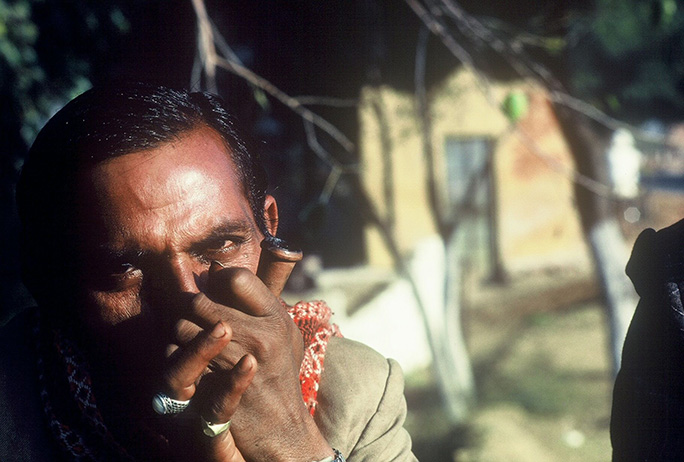Hash in India. Photo by Chris Kilham
Pairing of the two age-old healing methodologies is on the rise, but it's not a new trend.
While the pairing of the two age-old healing methodologies is on the rise, it’s by no means a new trend. Yoga and cannabis are intertwined in antiquity. In India, the birthplace of yoga, the sacred status of the cannabis plant, or ganja/hashish was revered and celebrated as an integral part of culture for millennia. Then In 1961, despite significant opposition from India, the U.S. pressured India and other nations to sign an international narcotics treaty banning cannabis as a dangerous drug at the Single Convention on Narcotic Drugs in New York. This was part of the disastrous, decades-long U.S.-led global war on drugs, which demonized cannabis beginning in the 1950s.
At long last, just this decade, the herb’s status as a medicine is beginning to reemerge. With its gradual re-legalization in the U.S. and elsewhere, the public is relearning about its potential to help children with epilepsy, shrink cancerous tumors, alleviate chronic pain (more safely and successfully than opiates), and provide feelings of relaxation and bliss in a much safer way than alcohol.
Even as cannabis was legally banned for public use in India, a number of yogic sects continue to use the herb.
“Throughout the entire Indian hemisphere, I’ve gone to at least many dozens of Shiva temples and there’s always cannabis there; there’s always hashish there. People will often smoke and then listen to or participate in kirtan—singing of holy songs. In the case of yoga, and this is consistent [in myth], at one point the gods were having some sort of family squabble and Shiva just didn’t want any more of that, so he went outside and lay under a big, monster cannabis plant and ate some of the leaves. He got loaded, and went, ‘Oh my god, this would be ideal to give to mortals so that they could have some experience of me and worship me.’” – Chris Kilham, AlterNet


